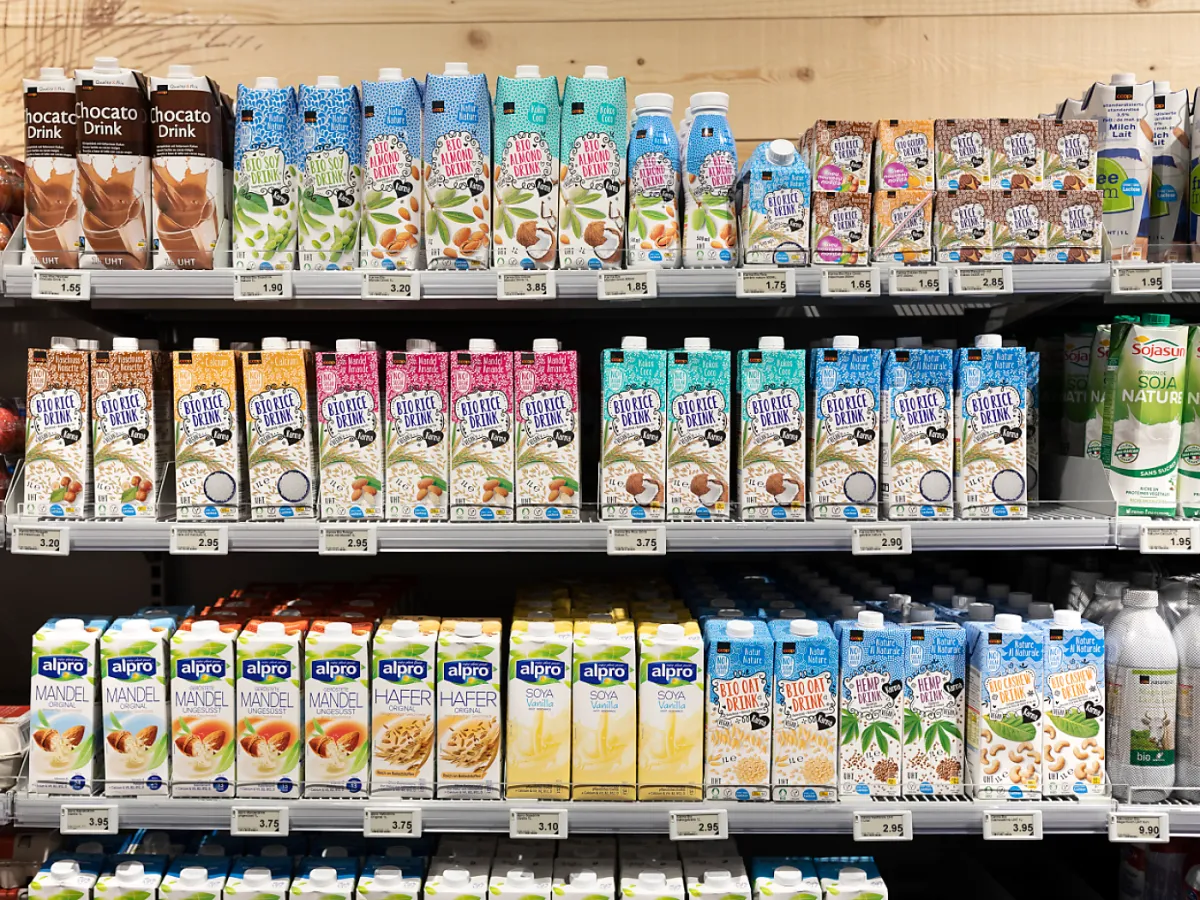
Packaging Of Plant-Based Milks Can Be Misleading, Says Study
-
Deutsch
de
Labels auf Hafermilch und Co.: Im Übermass verwirren sie
Original
Read more: Labels auf Hafermilch und Co.: Im Übermass verwirren si
+Get the most important news from Switzerland in your inbox
The labels actually provide consumers with helpful product information, the Swiss Federal Centre of Excellence for Agricultural Research Agroscope reported on its analysis of 66 products from supermarkets on Friday. This can contribute to the purchase of healthier and more sustainable food.
In their comprehensive online market analysis, Agroscope researchers checked whether the labels matched the nutritional information and the price on the packaging. They collected the data from three Swiss supermarkets.
Many labels on one packThey scrutinised eight types of labels ranging from nutrition to diet, allergy information, ecology and sustainability. These included terms such as“no added sugar”,“dairy-free”,“vegan” and similar.
The majority of the milk substitute products analysed had three to six labels on the packaging. At least one label was printed on the packaging, a maximum of nine. Eleven products had several labels with the same information.
+ Dairy substitutes filling up Swiss shelves
According to Agroscope, nutrition-related labels such as the one with sugar information were most frequently found on the packaging (34%). Diet labels such as“vegan” were in second place with 29%, followed by allergy information with 18%.
No less sugarThe labels were correct in each case. According to Agroscope, however,“no added sugar” proved to be misleading. The sugar content of products labelled in this way is not lower than those without the label. This is because the corresponding milk alternatives have a high natural sugar content.
Although the label does not promise a lower sugar content, according to the research centre it could suggest this to the consumer.
Agroscope concludes that the large number of labels could overwhelm consumers. Suppliers should avoid potentially misleading labels. And consumers should be better informed about how to interpret nutritional information.
Translated from German by DeepL/ts
How we workWe select the most relevant news for an international audience and use automatic translation tools such as DeepL to translate them into English. A journalist then briefly reviews the translation for clarity and accuracy before publication. Providing you with automatically translated news gives us the time to write more in-depth articles. The news stories we select have been written and carefully fact-checked by an external editorial team from news agencies such as Bloomberg or Keystone.
Did you find this explanation helpful? Please fill out the short survey below to help us understand your needs.
External Content Popular Stories More Life & Aging Zurich: how the world capital of housing shortages is tackling the problem Read more: Zurich: how the world capital of housing shortages is tackling the problem
Legal Disclaimer:
MENAFN provides the
information “as is” without warranty of any kind. We do not accept
any responsibility or liability for the accuracy, content, images,
videos, licenses, completeness, legality, or reliability of the information
contained in this article. If you have any complaints or copyright
issues related to this article, kindly contact the provider above.

















Comments
No comment